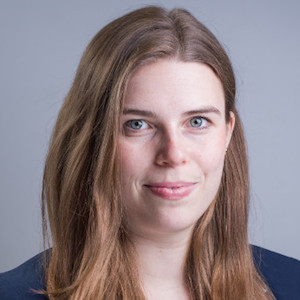
Originally posted by the authors on Women in Economics
Recent years have seen significant improvements in female representation in the workplace. Information campaigns, feminist associations, female employment quotas and a rising number of female role models all contribute to an improved gender balance in Western European and US workplaces.
Despite this progress, we remain far from achieving gender balance in the workplace. A significant contributor to the reform slowdown is the emergence of diversity fatigue and inclusion backlash among many companies trying to implement more gender inclusion in the workplace. It becomes increasingly clear that we need to find a way to redefine popular gender discourse if we wish to deliver more inclusion.
According to the 2018 Global Gender Gap Report, current projections place the closing of the gender gap at 108 years from now. Yet success stories of female economists such as Esther Duflo, Christine Lagarde and Laurence Boone make it easy to cast data aside. They often let us forget about the existence of glass cliffs, implicit gender bias in recruitment and publication processes, pregnancy discrimination, sexual harassment, office favouritism, lack of role models, and restroom gossip, just to name a few. As compelling as success stories might be, they seem not to be bellwethers for reform.
In the fight against gender discrimination, we face an elusive enemy. A recent International Labour Organisation survey found discrimination and unconscious gender bias to be among the five main challenges for women holding leadership positions. Unconscious bias stems from social norms, values, and experiences that contribute to decision-making. Such bias often manifests itself in an overall masculine corporate culture, along with preconceptions related to social roles and abilities of men and women, and the masculine nature of management positions.
Limited reflection on the effect of unconscious bias towards women in the workplace risks understating the urgency to push for more equality, allowing for a feeling of diversity fatigue to set in. Cundiff and Vescio (2016) show that individuals with strong gender stereotypes are less prone to attribute workplace gender disparities to discrimination. In 2017, James Damore, a Google engineer, unintentionally sided publicly with Cundiff and Vescio when he sued his employer on the grounds of intolerance against individuals holding unpopular political beliefs. The lawsuit came as a response to Google terminating the contract of Mr. Damore, following his drafting of an internal memo in which he argued that female underrepresentation in the tech industry is due to abilities, rather than flagrant discrimination.
The Google case describes too well the feeling of exhaustion towards diversity and inclusion issues that motivates us to take action. The recent gender inclusion backlash points to a need to revisit how we discuss gender. We should both question the validity of the design of inclusion programmes and acknowledge that we still have a long way to go until we reach equality of opportunity between genders.
We need to reinvent the way we discuss gender by taking the focus away from high-level gender policies and fairness approaches. Instead, we propose to address gender stereotypes and to develop a strong performance-oriented approach to discussing inclusion. Only by acknowledging that our profession has a gender issue will we be able to revisit this old problem through a new perspective – one that brings together practitioners across both genders, to work towards a more inclusive workplace.
About the Women in Economics Initiative
Together with some friends, we have recently launched the Women in Economics Initiative (WiE). The Women in Economics Initiative was established to advance gender equality in the field of economics. Our goal is to encourage equal opportunity and a balanced representation of genders in the economics profession across the academic, business and public sectors. To achieve this, we offer a platform that highlights the work of women economists, a network to connect and exchange ideas and interactive data about the status of diversity in economics.
We are looking for new members, supporters as well as submissions of articles from women economists on their work.

Eva Schoenwald ’18 is a quantitative researcher at Nesta and deputy chair of WiE. She is an alum of the Barcelona GSE Master’s in Economics.

Iakov Frizis ’18 is a senior economist at PwC Luxembourg and editor-in-chief of WiE. He is an alum of the Barcelona GSE Master’s in Economics.
